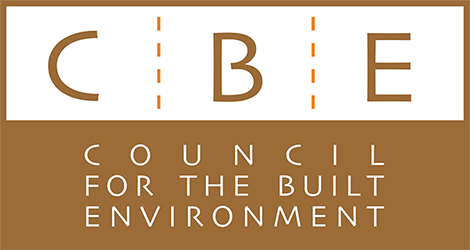Built Environment Regulator Hosts the First Built Environment Climate Change Indaba in Durban, KwaZulu-Natal
Durban, 29 August 2023; The Council for the Built Environment (CBE) and the Department of Public Works and Infrastructure will convene a Built Environment Climate Change Indaba from 31 August to 01 September 2023 at Olive Convention Centre in Durban, KwaZulu-Natal. The impact of climate change is already felt across the Globe, manifesting in unprecedented droughts, floods, bush fires, and other extreme weather events. South Africa has also borne the brunt of such with reference for example to the recent flooding in KwaZulu-Natal and the Port St Johns area.
“The built environment is central to efforts to reduce the impact of climate change. The Indaba, to be held under the theme “Restoring Access-Rebuilding, Social-Cohesion and Healing of Communities through Social Infrastructure” aims to tighten the planning of preventative measures against climate change-related disasters and ensure a coordinated response to the challenges faced by communities,” says Dr Msizi Myeza.
In line with its mandate, the CBE has intensified its focus on facilitating, coordinating and driving efforts to reduce and mitigate the impacts of climate change in the South African Built Environment, with a specific emphasis on those population groups most vulnerable to the impacts of climate change Vis-à-vis natural disasters.
“To mitigate the impact of climate change, urgent action is needed to reduce greenhouse gas emissions and improve climate resilience. This will require significant and unparalleled changes across all sectors of the economy, especially the built environment. The Intergovernmental Panel on Climate (IPCC) in its synthesis of the 6th assessment report asserts that anthropogenic emissions of greenhouse gases have caused global warming, with global surface temperature reaching 1.1°C above 1850-1900 in 2011-2020. The report further notes changes in the climate system, and that climate change is already affecting many weather and climate extremes in every region across the globe,” adds Xolisa Ngwadla.
Limiting warming to 1.5°C and 2°C requires rapid, deep and in most cases immediate greenhouse gas emission reductions across all sectors. In the near-term a focus on climate resilient development which integrates adaptation to climate impacts and mitigation of emissions is critical to advancing sustainable development for all. South Africa’s updated mitigation targets commit the country’s emission to 398-510 MtCO2e by 2025, and 350-420 MtCO2e by 2030, compared to the 2017 levels of just under 500 MtCO2e.
This Indaba seeks to engage and coordinate built environment stakeholders towards a framework on how the sector can contribute towards the transition of the South African economy to one that is low- carbon and climate resilient for consideration by the PCCC. The two-day event brings together over 1000 professionals, experts, and researchers with a wealth of experience from across the built environment profession and government to exchange ideas that will bring an impactful input to the climate change challenge. The aim of this Indaba is to identify and incorporate Indigenous Knowledge Systems in the construction life cycle, to gauge the impact of climate change in the Built Environment especially among the vulnerable, to provide a platform for collaboration and sharing of knowledge among communities, industry, academia, and the public and private sectors.
The Indaba also seeks to interrogate challenges and possible recommendations or solutions from multi-dimensional perspectives and to track the overall progress of measures and interventions aimed at reducing and mitigating the impact of climate change in the South African Built Environment year- on-year.
The Resolutions attained from the discussions at the Indaba are expected to contribute to the following:
- The design and development of Built Environment Codes of Conduct and advance Built Environment Policy.
- Provide platform for industry leaders, government leaders, experts, civil society, and academia to advance BE Policy intended to be presented to the Presidential Climate Change Commission.
- Contribute to the development of a locally customized rating system for infrastructure.
- Contribute to the development of the CBEs Broad Based and long-term Sustainability Strategy
for the Built Environment Professions.
- Aligning of Indigenous Knowledge Systems with technical expertise and ensuring awareness
in adaptation or mitigation.
- Effective town planning that will keep climate change in mind with alternative climate change
building materials.
- The promotion of interventions and generating of awareness among communities.
- The COP 27 Agenda and the Built Environment Sector’s implementation.
Media Enquiries:
- Nosizwe Mokoena on 078 415 92 11 – CBE Stakeholder Relations and Communications Manager
- Lennox Mabaso on 072 752 4949 – Public Works and Infrastructure Spokesperson
For participant registration and further information on the Indaba visit http://www.becc2023.org.za
